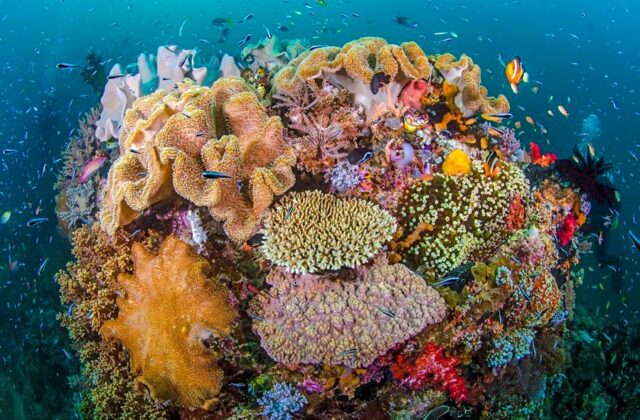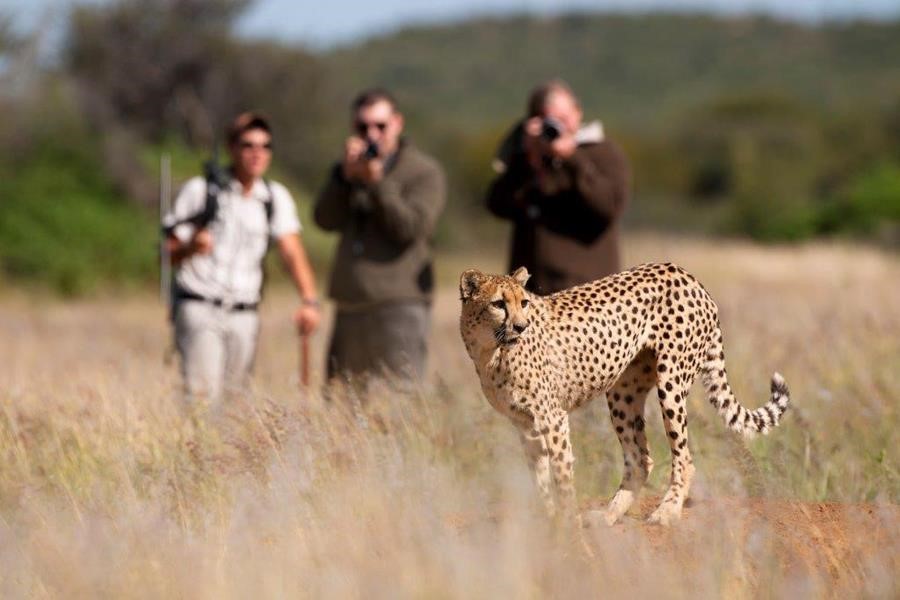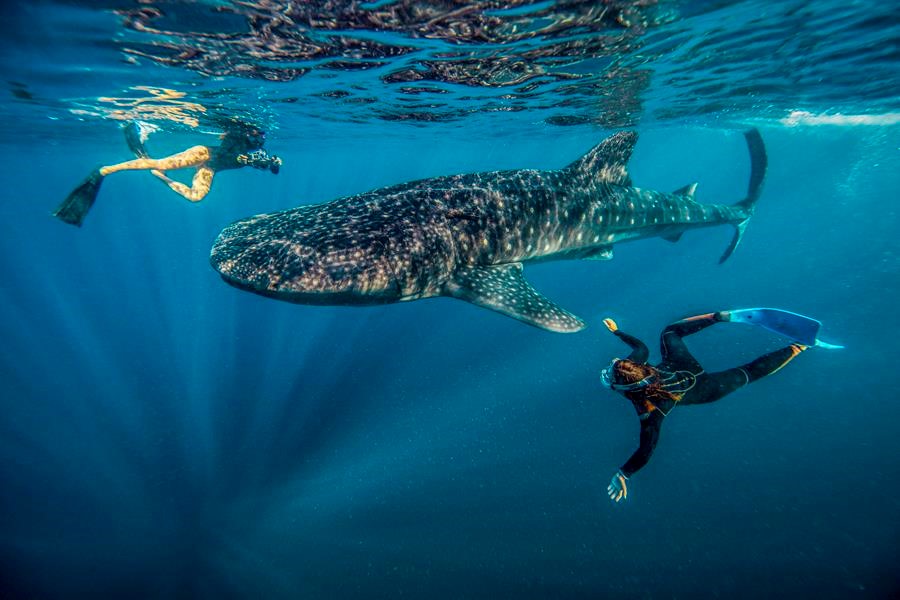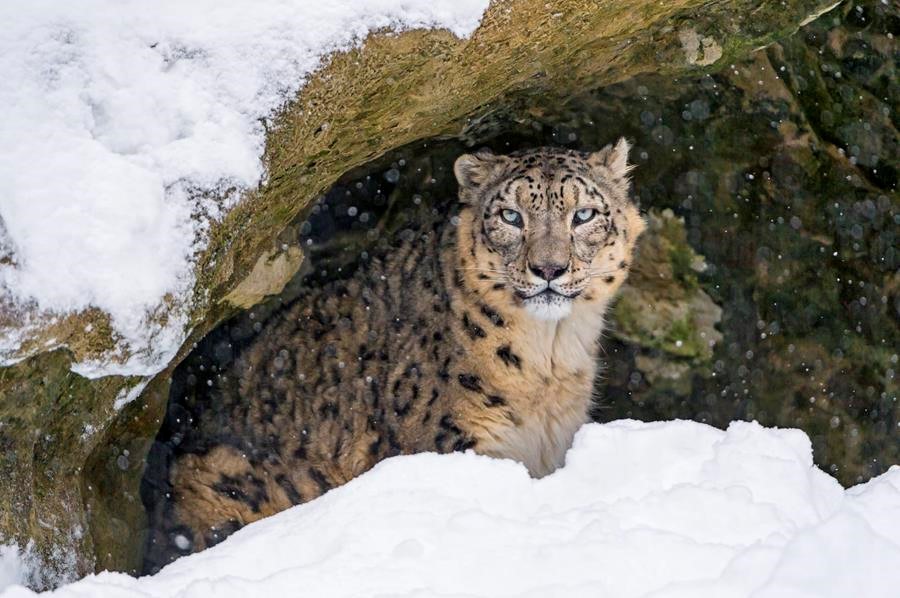Wilderness Travel Honours World Wildlife Day

Berkeley, CA – March 4, 2024 – Each year, March 3rd marks World Wildlife Day, a collective opportunity to celebrate, learn, and take action to protect and advocate for wild animals and habitats on earth. Today, Wilderness Travel calls attention to critical conservation initiatives taking place across the globe to research and protect vulnerable or endangered species and threatened environments, supported in part by their trips and travelers.
Wilderness Travel also wants to call attention to the work of the Adventure Travel Conservation Fund (ATCF), of which they are founding member. The ATCF is an industry-led collective of leaders who have come together to advocate for and support community-based projects protecting threatened communities, cultures, and wild places. The organization provides resources for a variety of community-led projects across the globe. To date, the ATCF has awarded over $500,000 to projects that are working on conservation related initiatives benefitting wildlife, wild places, communities, and the wider adventure tourism industry. To learn about the inspiring work of their funding recipients, please visit this link.

“It has never been more important for people to engage with diverse natural habitats and see wildlife for themselves in a respectful and conscientious way,” says Nicole Abbott, Vice-President of Wilderness Travel and Adventure Travel Conservation Fund Board Member. “Travel is a powerful way to help people connect with, understand, and ultimately advocate for the health and well-being of wildlife and wild places on a global scale. That connection is a vanguard against apathy and critical for stimulating meaningful action.”
Below are just some of the conservation initiatives supported by Wilderness Travel through their trips to enable travelers to connect with and support meaningful work designed to help us better understand and, in turn, better protect wildlife. To learn more about their conservation initiatives, please visit their Community & Conservation page.
Photo: Wilderness Travel
Large Predator Research and Conservation in Namibia

AfriCat Foundation – The AfriCat Foundation was established in the early 1990s to contribute to the long-term conservation of Namibia’s wildlife. Recognizing that protected areas for wildlife contribute to conservation by offering a solution for habitat loss and human-wildlife conflict, AfriCat takes advantage of its location in the 220 square kilometre Okonjima Nature Reserve to conduct research on the ecology of flora and fauna in enclosed protected areas and the reversal of rangeland degradation. AfriCat research projects focus particularly on carnivores, including rare and endangered species like leopard, cheetah, hyena, and lion. The non-profit also run the AfriCat Carnivore Care Centre, rehabilitating predators who are rescued, treated, and released back to the wild or providing a home on the conservancy for predators that can no longer live in the wild for a variety of reasons. The foundation has one of the longest leopard monitoring projects in Namibia, and they operate one of very few pangolin research projects focused on monitoring pangolin in the wild.
You will visit, learn from, and directly support the AfriCat Foundation when you travel with Wilderness Travel on Namibia Expedition and Nambia: Green Season Safari. For a more immersive experience, participate in leopard tracking with the AfriCat Foundation on departures of Namibia: Giraffe Conservation Safari, Ultimate Namibia and Botswana, and Namibia: In the Realm of the Desert Lion.
Protection of Endemic Species in the Galápagos

Galápagos Traveler Conservation Fund – The Galápagos Traveler Conservation Fund (GTCF), of which Wilderness Travel is a founding member, is an alliance of travelers, travel operators, and conservation organizations dedicated to the complete and lasting protection of the Galápagos Islands. The GTCF provides funding to front-line conservation organizations like Darwin Animal Doctors, WildAid, the Charles Darwin Foundation, The Sea Shepherd Conservation Society, Ecology Project International and others focused on a variety of critical wildlife initiatives. This includes the isolation and control of invasive species, the single greatest threat to all wildlife and ecological diversity in the Galápagos since non-endemic species often outcompete endemic wildlife for resources or overtake natural habitat. Another critical pillar of wildlife conservation is combatting illegal poaching and fishing including shark finning, illegal industrial longline fishing and illegally harvesting species like sea cucumber from the Marine Reserve. The GTCF also prioritizes funding for organizations spearheading local youth leadership in science and conservation programs for young Ecuadorians, and fostering stewardship among visitors, residents, and others who interact with the extremely special environment.
Guests support the GTCF, and by extension the innovative work of front-line organizations they fund, on all adventures with Wilderness Travel in the Galápagos including Galápagos Adventure aboard the Passion, Ultimate Galápagos aboard the Passion: Eastern and Western Islands, Galápagos Adventure aboard the Coral II, and the intimate Galápagos Private Journey.
Snow Leopards Conservation in India

Snow Leopard Conservancy – The Snow Leopard Conservancy (SLC) is a trans-Himalayan NGO dedicated to the conservation of the highly endangered snow leopard. The SLC is dedicated to meaningful research on the big cats interaction with other species and the physical environment, education, and building innovative conservation programs targeted at conflict-mitigation, particularly as it relates to the interaction between snow leopards and livestock farming. The snow leopard is one of the most endangered big cat species in the world, with an estimated global population of 3,500-7,000, with approximately 500 inhabiting the Indian Himalayas. These big cats are uniquely adapted to cold, arid environments and, in India, they largely inhabit the high altitude, rugged landscapes of Jammu & Kashmir, Himachal Pradesh, Uttarakand, Sikkim, and Arunachal Pradesh. The species is highly threatened in India because of poaching, climate change, human-wildlife conflict, and human infrastructure projects like mining and hydroelectric dam development.
Guests directly support the work of the Snow Leopard Conservancy when traveling with Wilderness Travel on Searching for Snow Leopards in India – tracking snow leopards from home base at a local lodge in Ladakh, the best place in the world to spot these elusive creatures, partnered with the SLC to ensure that protecting the species generates income and benefits for the entire community.
Photo: Wilderness Travel
Visit this link to learn more about Wilderness Travel’s commitments to conservation and to view the many other projects focused on conservation they (and their travelers!) support through their trips.
 Travel Dreams Magazine
Travel Dreams Magazine